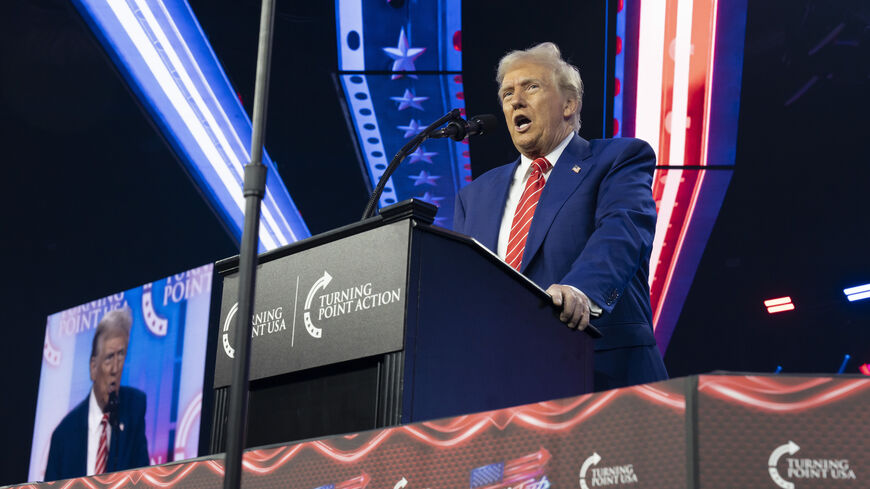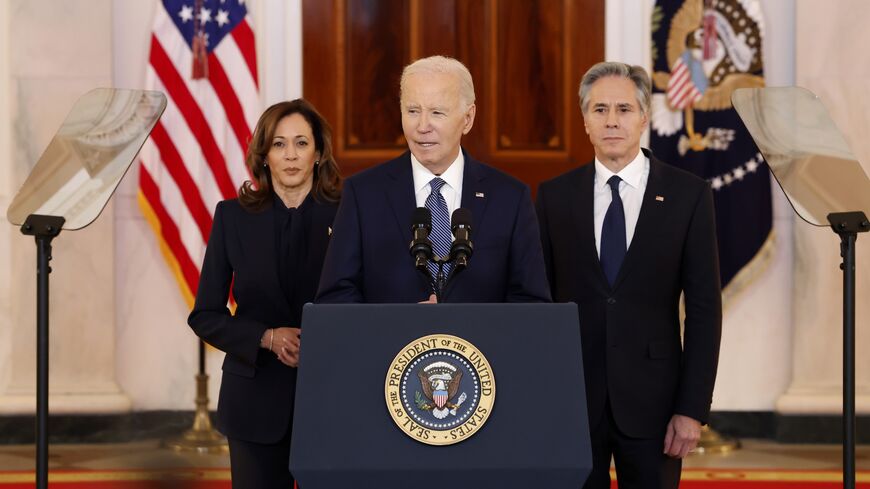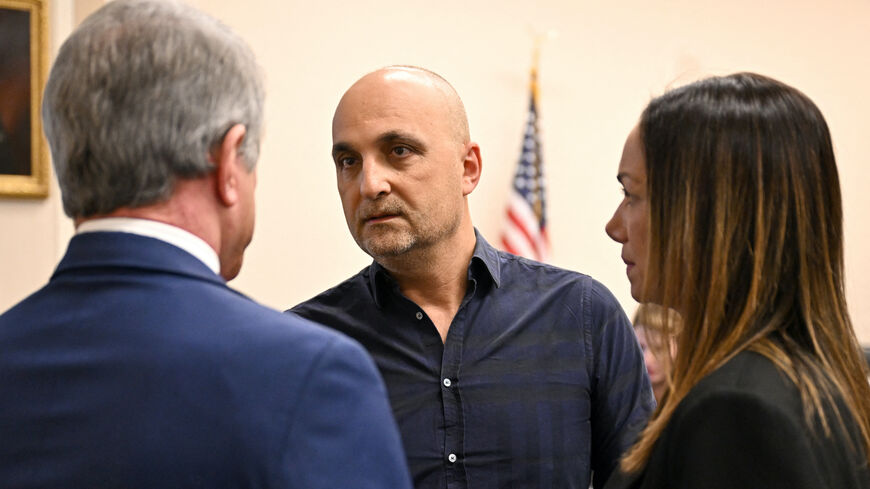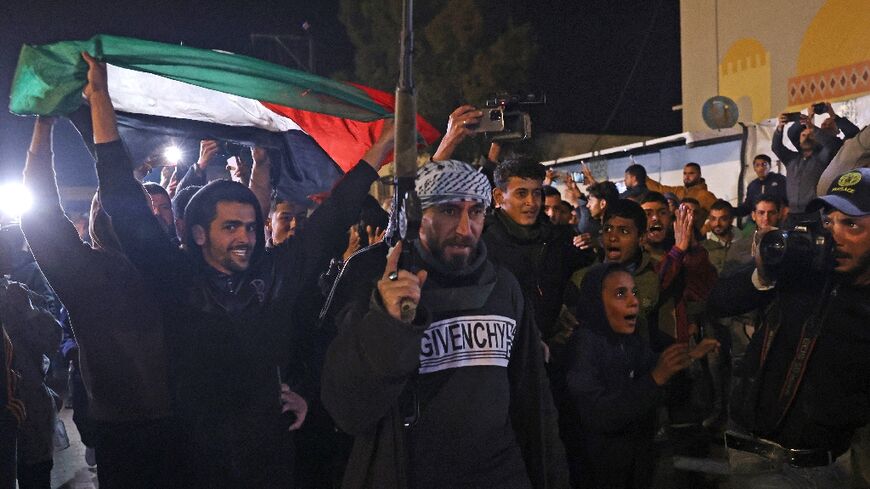Gaza ceasefire deal reached between Israel and Hamas
Three Americans — Keith Seigel, Sagui Dekel-Chen and Edan Alexander — are among the hostages set to be released from Hamas captivity.
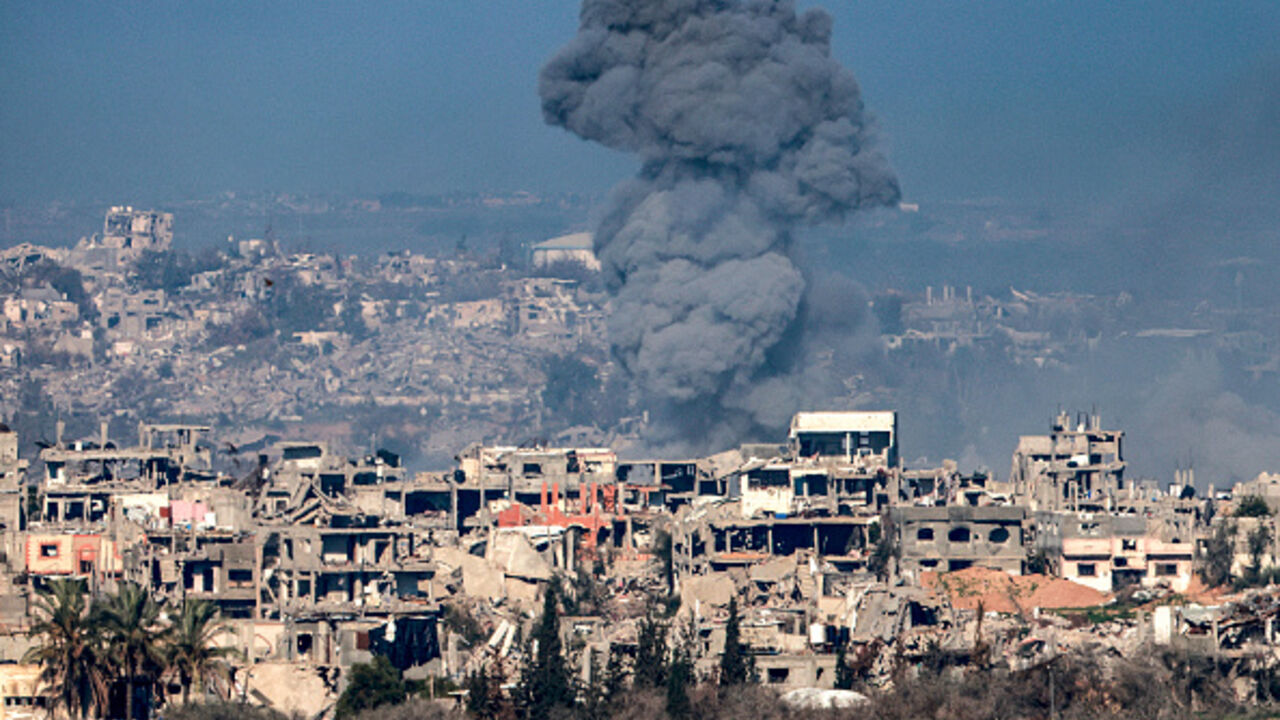
WASHINGTON — A deal to end the 15-month war in the Gaza Strip and release the hostages held by Hamas has been reached, President Joe Biden announced Wednesday. The agreement between Israel and the Palestinian militant group will take effect on Sunday.
"At long last, I can announce a ceasefire and hostage deal has been reached between Israel and Hamas,” Biden said in remarks from the White House.
“I'm proud to say Americans will be part of that hostage release in phase one. The vice president and I cannot wait to welcome them home,” Biden said.
Indirect talks over a deal resumed in the Qatari capital of Doha earlier this month, with Arab and American mediators hammering out the details of which hostages were to be released in exchange for Palestinian prisoners held in Israel.
Israeli authorities believe there are 98 hostages remaining in Gaza, including seven Americans. At least a third of them are presumed dead.
A senior Biden administration official briefing reporters late Wednesday said the full list of who would be released on either side “was not fully nailed down” until earlier that day.
The official said negotiators worked late into the night on Tuesday, with Hamas officials on the first floor of a two-story building and Israeli negotiators on the second floor. Qatari and Egyptian mediators shuttled messages between them.
Basem Naim, a spokesperson for Hamas, confirmed to Al-Monitor earlier on Wednesday that the group had accepted the final draft of the deal and submitted its response to negotiators Egypt and Qatar.
The ceasefire and hostage deal still requires formal ratification in Israel. The office of Prime Minister Benjamin Netanyahu stopped short of announcing an agreement, writing in a statement Wednesday evening local time that it hoped “the details will be finalized tonight.”
Once implemented, the three-phase deal would see Hamas free 33 hostages — women, children, as well as the wounded and elderly — in return for Israel’s release of hundreds of Palestinian prisoners over an initial six-week pause in the fighting.
The senior administration official told reporters that Americans Keith Seigel, who is in the elderly category, and Sagui Dekel-Chen, who was shot on Oct. 7 and in the wounded category, will be released in phase one. Edan Alexander, the other living American, is an Israeli soldier and is expected to come out in the second phase.
Israeli forces would also begin their phased withdrawal from Gaza, Palestinian civilians would return to their homes in northern Gaza, and there would be a surge in humanitarian assistance to the war-torn territory during the first phase of the deal.
Biden stated that a "number of details" still need to be negotiated to transition from the agreement's first phase to the second, which is a permanent end to the war. If those negotiations take longer than six weeks, the temporary ceasefire will continue as long as the negotiations do.
Hamas would release the remaining living hostages, including male soldiers, and the Israeli military would fully withdraw from Gaza during the deal’s second phase. The remains of the deceased hostages would be returned in the third phase, and reconstruction of the battered enclave would begin.
“The Palestinian people have gone through hell. Too many innocent civilians have died,” Biden said. “The people of Gaza can finally recover and rebuild and can look to a future without Hamas in power.”
More than 46,000 Palestinians have been killed in the 15-month war, according to local health officials — roughly 2% of Gaza’s prewar population of about 2.3 million. A majority of the dead are women and children.
The hard-won Gaza deal comes days before Biden leaves office. He acknowledged the terms of the agreement would be implemented by the incoming Trump administration.
“We’ve been speaking as one team," Biden said of the negotiations. “We're handing off to the next team a real opportunity for a better future for the Middle East. I hope they will take it."
For his part, President-elect Donald Trump wasted little time taking credit for the agreement on his social media platform, Truth Social.
“This EPIC ceasefire agreement could have only happened as a result of our Historic Victory in November,” Trump wrote, pledging to ensure “Gaza NEVER again becomes a terrorist safe haven.”
Without specifying the consequences, Trump vowed repeatedly since early December there would be “hell to pay” for Hamas if it didn't release the hostages before he takes office on Jan. 20. Last week, Trump dispatched his incoming Middle East envoy, Steve Witkoff, to coordinate with negotiators in Qatar and Israel.
The senior administration official said there was an “almost unprecedented” level of coordination between Witkoff and Brett McGurk, the current White House’s point person for the Middle East.
The prime minister of Qatar, Sheikh Mohammed bin Abdulrahman Al Thani, said both the Trump and Biden teams “played a vital role in reaching this moment.”
“It all depends on the parties of the agreement acting in good faith,” Sheikh Mohammed told reporters in Doha. The United States, Egypt and Qatar will monitor the ceasefire’s implementation via a joint body in Cairo, he added.
Both Israel’s security cabinet and government must still ratify the ceasefire agreement for it to take effect. Israeli broadcaster Kan reported that the security cabinet will convene at 11 a.m. Thursday.
In a statement, Israeli President Isaac Herzog called on Netanyahu and his government to accept the deal.
“There is no greater moral, human, Jewish or Israeli obligation than to bring our sons and daughters back to us — whether to recover at home or to be laid to rest,” Herzog said.
This developing story has been updated since initial publication. Megan Mineiro, Adam Lucente and Jared Szuba contributed to this report.

